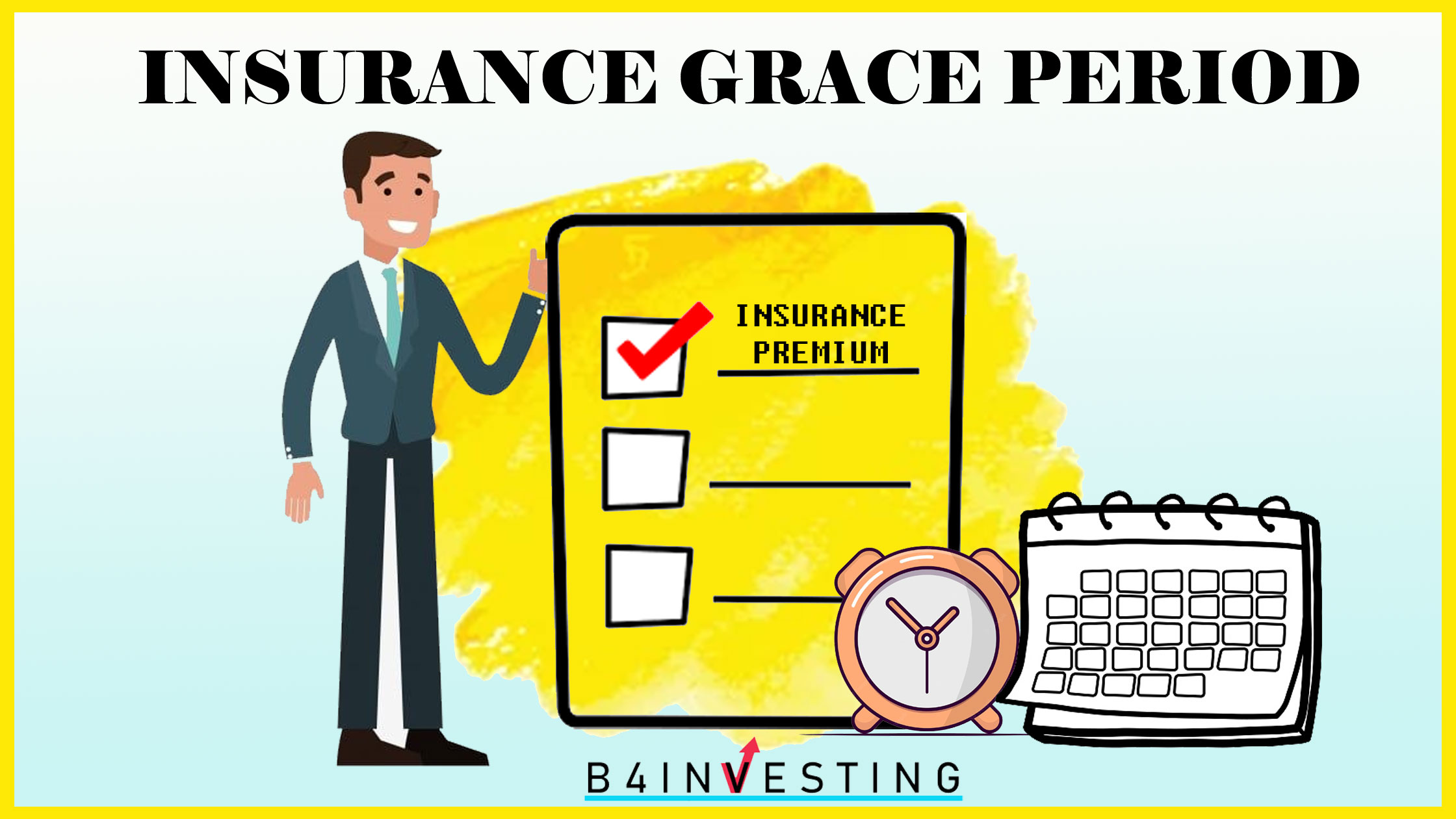
What is Insurance Grace Period?
Lets start with basic definition of insurance. Insurance is something which people buy to protect themselves from losing money. In return of policy, a person gets money if something happens to his insured thing or life | health. An insurance premium is a monthly or annual payment made to an insurance company that keeps one’s policy active. Health insurance, life insurance, auto insurance, disability insurance, homeowners insurance, and renters insurance require the policyholder to pay a premium to continue receiving coverage and keep policy active.
Sometimes, people forget to pay premium on time and keep the policy active. And, policy holders can only get the insurance benefits under a policy when they have paid the due premium on time. So, all insurance companies give a second chance to pay premium if insured forgets. That time given by insurance company is known as grace period.
So, we can define an insurance grace period as the specific additional time insured gets after the due date to pay the premium and avoid a policy lapse. It is clearly mentioned in the policy contract. Depending on the insurance policy, the grace period can be as little as 24 hours or as long as 30 days.
Read also: Insurance and Different Types of Insurance
How Does Insurance Grace Period Work?
Insurance company gives grace period to prevent policy holder’s loss of insurance coverage in case they fail to pay premium. Grace period acts like a shield to protect loss of coverage, benefits. Everyone is not in same financial situation to pay premium on time. So, insurance company has to give grace period.
Insurance companies keep the insurance grace period short possibly to prevent a situation in which they haven’t received a premium payment but still have to cover damages. The insurance company has to pay any services to policyholders for which they are eligible for as long as the insurance grace period is still active.
But, if an insurance policy is canceled due to non-payment, insurance company cannot cover a damage. insured will likely have to go through the entire application process again. Insured has to subscribe to insurance policy again.
Insurance applications often ask if a person ever had a policy canceled, and if a person answers yes, he’ll be probably be flagged as a high-risk customer and subject to higher premiums.
Drawbacks of Not Paying Premiums on Time
There are many disadvantages of not paying insurance policy premium on time:
1. Loss of Insurance Coverage
Insurance is something from which insured or his dependent can claim money if something happens to life or health of insured person, or thing like building, car, scooter, etc. But, in case if policyholder fails to pay the insurance premium on time or during insurance grace period, the claims raised may be considered as invalid, so insured loose the coverage.
2. NCB loss
General insurance plans like health insurance or motor insurance gives policyholders benefits in the form of No Claim Bonus (NCB) for every claim-free year. One possible effect of not paying premiums till the end of insurance grace period is the loss of NCB.
3. Higher cost of new policy
When policy gets lapsed, policy holder has to buy new policy. A new policy will cost more because health insurance costs keep rising. Plus, a policy holder would be a year older, another factor that leads to higher premiums. When lapsed policy is renewed, policy holder doesn’t get benefits such as NCB or other benefits which can lower the renewal premium. It increases the expenses. The insurance company may ask for penalty charges during the insurance revival stage as per their internal policies.
What is Revival Period?
Insurance policy lapses when the policy holder does not pay premium beyond a grace period. Insurance companies provide an option of reactivating the lapsed policy, within a specific period of time post the grace period. This period offered by the insurer to revive the policy and avail benefits pertaining to it is termed as revival period. During the revival period, the policy is reinstated on the basis of certain conditions. Like, the policy holder may need to pay the interest along with the unpaid premium or the policy holder needs to undergo medical tests in order to reinstate the policy.
4. Portability Loss
In some types of general insurance policies, insured gets the provision to change the existing insurer and port policy to his choice of insurance company. But he loses this provision if his policy gets lapsed due to non payment of premium.
Takeaway:
Every person should have insurance policy; health, life, home, travel, car, etc. Seeing today’s lifestyle, insurance is must for everyone to protect health, family, money, lifestyle, financial losses etc. But to pay premium time to time is must. Insurance company provides grace period if you fail to pay premium on time. Insurance acts life a shield when you are in trouble.
There is option to port to new insurance policy without losing the benefits, privileges or bonus points of your current policy or plan. There are certain conditions to port your policy.

